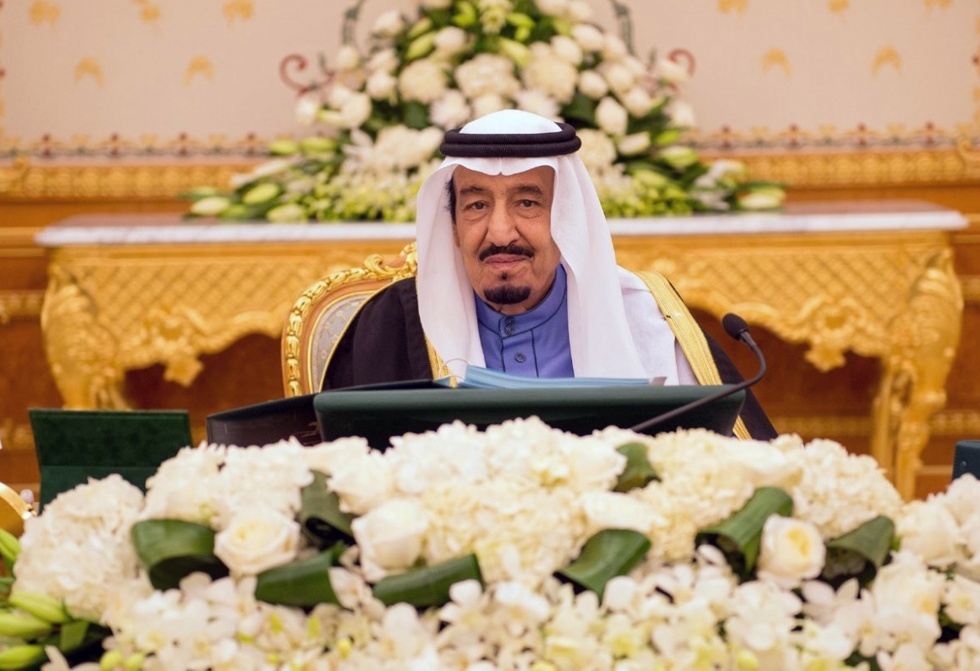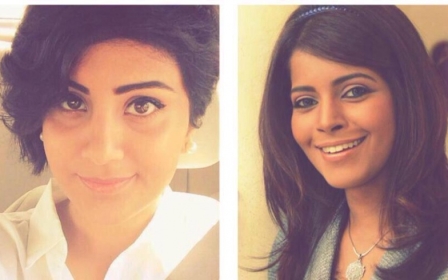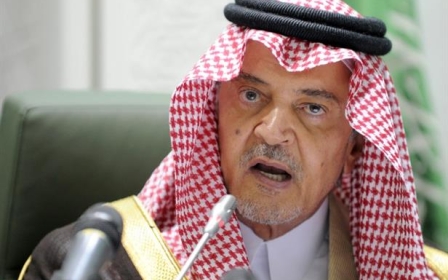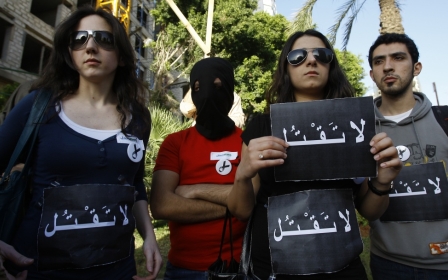Saudi Arabia shift closer to change in policy toward Muslim Brotherhood

A former member of Saudi Arabia’s Consultative Assembly on Thursday said it is “unreasonable” to designate the Muslim Brotherhood as a terrorist organisation, adding to reports the Gulf country may be considering a change of policy under the recently crowned King Salman.
Despite Riyadh having labelled the Brotherhood a terrorist organisation last year, Ahmed al-Tuwaijri said “to say that the Muslim Brotherhood is a terrorist organisation is completely unreasonable” in a television interview with the Gulf-based Rotana television channel.
MEE sources, who asked to remain anonymous, said Tuwaijri is “currently close” to King Salman and advises him in an “unofficial capacity,” indicating that his comments may reflect changing perspectives within the House of Saud.
The interviewer asked Tuwaijri whether the kingdom’s stance toward the Brotherhood will change under Salman, referencing a recent interview with Foreign Minister Saud al-Faisal in which he said Saudi Arabia has “no problem” with the group.
Tuwaijri responded by saying that the Brotherhood as a “nation” and “natural ally” for Saudi Arabia.
He denied the Interior Ministry had designated the whole Brotherhood as terrorists and explained the “context” around the group’s designation as an outlawed organisation.
“There is something called linguistic context,” Tuwaijri told Rotana, a television channel owned by Saudi billionaire al-Waleed bin Talal.
“The kingdom couldn’t say in one statement that the Muslim Brotherhood is a terrorist organisation. It (the designation) came as part of a list of terrorist organisations and the Muslim Brotherhood’s name was added to that. It (the designation) is a group of organisations that follow the path of violence, intent on spreading terror [the designation condemns] all those to whom this applies.”
“To take this concept and have it generalised over this huge organisation that stretches from Indonesia to Morocco and to say that it is all terrorist is unacceptable to someone of reason,” he added.
Saudi Arabia under King Abdullah, who passed away in January, fiercely supported the popularly backed 2013 military coup in Egypt that removed freely elected Muslim Brotherhood leader Mohammed Morsi from the presidency.
Abdullah sanctioned billions of dollars in aid to the former army chief turned president Abdel-Fattah al-Sisi and swiftly followed Cairo in labelling the Muslim Brotherhood a terrorist organisation in March 2014.
Despite Saudi appearing like a strong opponent of the Brotherhood, Tuwaijri said a regional context provided a different outlook on the kingdom’s relationship with the organisation.
He mentioned Morocco and Tunisia, where the Brotherhood are partners in a coalition government, and referenced Turkey, where he said the “ruling power is from the Muslim Brotherhood”. Recep Tayyip Erdogan, who rules the Justice and Development (AKP), is a supporter of but not officially affiliated with the Brotherhood.
“The kingdom doesn’t have any problem with these groups, and vice versa. They have to be allies and we have to have strategic relationships with them,” the former Consultative Assembly member said, who once praised Erdogan's "ferocious jihad".
Tuwaijri added that it was “offensive” to Saudi Arabia for all “clerics, thinkers, politicians and academics” associated with the Brotherhood to be labelled terrorists.
The presenter asked him if he feared arrest by the Interior Ministry for making comments seemingly in opposition to their position.
“I am certain that they will thank me because I have rectified an incorrect understanding. The kingdom cannot antagonise those who follow Islam. The kingdom must be precise in its positioning,” Tuwaijri answered.
Regional experts said while they do not expect a “major change” under Salman, it would appear prudent that the kingdom revaluates its position for certain policies.
“It was obviously a bit extreme, the reaction under Abdullah, to the Brotherhood,” said Andrew Hammond, senior policy fellow at the European Council on Foreign Relations.
“It was within the context of the Arab Spring that the Saudis became terrified about the gains of Islamist movements across the region. It is natural that they should be pulling back a little bit, especially because when it comes to Syria - where the Saudis are trying to remove [Syrian President Bashar] al-Assad - it’s clear the Brotherhood will be an important part of that process.”
“And if they ever succeed in getting rid of Assad the Brotherhood would no doubt play a key role in what comes next,” he added.
Egyptian Brotherhood members exiled in Qatar recently said “there’s a growing sense of hope” that under King Salman the group may have an opportunity to reassert itself.
“Things are changing around us with new leaders coming to power and it’s time we have a voice again and clarify to the world who we really are,” one member who decline to be named told Reuters.
While the Brotherhood may have their uses in certain areas, the group “are definitely an enemy for the Saudis,” according to Hammond.
“The Saudis see the Brotherhood’s desire to operate in a democratic system with an Islamic reference as fundamentally being a threat to their rule,” he said, adding that Riyadh will “want to continue the fight against them but in smarter ways.”
“If the Saudis draw a little closer to the Brotherhood it would allow them to know more about what they are doing, or trying to do, in Saudi Arabia. This is something the Saudis have done cleverly over the past 20 years - certain people within the Saudi regime have been regarded as close to the Brotherhood.
“This was a means for them to spy on the Brotherhood and ensure they were not becoming an active threat,” he added.
However, for now - at least publicly - Saudi Arabia remain staunch allies of Sisi’s Egypt who has continued to enact a fierce crackdown on the Muslim Brotherhood. Following the leak of a tape allegedly exposing Sisi as having insulted his Gulf patrons, Salman told the Egyptian president bilateral ties were “stronger than any attempt to disturb them”.
Yet if interviews such as Tuwaijri’s on Thursday indicate a subtle shifting of Saudi Arabia’s relationship with the Brotherhood, then they will likely face trouble with the UAE who view the group as terrorists in no uncertain terms, according to Hammond.
He said that while Riyadh and Abu Dhabi have worked closely in responding to challenges brought about by the Arab Spring, this partnership is not as strong as often portrayed, and it could be about to sour once more.
“The Saudis and Emiratis have never been that close,” he said. “In the period just before the Arab uprisings they weren’t getting well at all – border disputes from the 1970s had reappeared and there was a disagreement over the potential location for a GCC central bank.”
“What we have seen in the last few years is a temporary meeting of interests over wider issues of how to deal with the Arab uprisings. But it won’t last and their interests appear to be diverging again.”
Early signs under King Salman do appear to have hinted at a frosting in relations between Riyadh and Abu Dhabi, with neither UAE Crown Prince Mohammed bin Zayed nor Prime Minister Mohammed bin Rashid al-Maktoum attending the funeral of the late Abdullah.
Mohammed bin Zayed (MBZ), widely viewed as the power behind Sheikh Khalifa’s UAE throne, is said to have had a long-running spat with Saudi Arabia’s new deputy crown prince and second-in-line to the throne Mohammed bin Nayef, seen as a key powerbroker in Salman’s administration.
In a meeting with US officials prior to the 2003 US-led invasion of Iraq, bin Zayed suggested Nayef bin Abdulaziz al-Saud, the deputy crown prince’s father, had ape-like qualities.
“MBZ took a dim view of some of the senior al-Saud – sardonically noting that Interior Minister Nayef’s bumbling manner suggested that ‘Darwin was right’,” read the diplomatic cable published by Wikileaks.
Middle East Eye propose une couverture et une analyse indépendantes et incomparables du Moyen-Orient, de l’Afrique du Nord et d’autres régions du monde. Pour en savoir plus sur la reprise de ce contenu et les frais qui s’appliquent, veuillez remplir ce formulaire [en anglais]. Pour en savoir plus sur MEE, cliquez ici [en anglais].




